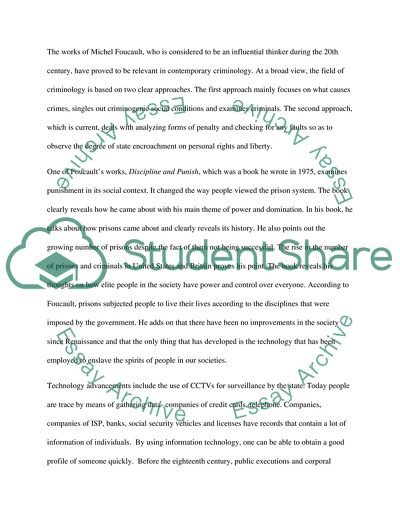Cite this document
(“The Work of Michel Foucault in Contemporary Criminology Research Paper”, n.d.)
The Work of Michel Foucault in Contemporary Criminology Research Paper. Retrieved from https://studentshare.org/law/1651532-how-is-the-work-of-michel-foucault-relevant-to-contemporary-criminology-discuss
The Work of Michel Foucault in Contemporary Criminology Research Paper. Retrieved from https://studentshare.org/law/1651532-how-is-the-work-of-michel-foucault-relevant-to-contemporary-criminology-discuss
(The Work of Michel Foucault in Contemporary Criminology Research Paper)
The Work of Michel Foucault in Contemporary Criminology Research Paper. https://studentshare.org/law/1651532-how-is-the-work-of-michel-foucault-relevant-to-contemporary-criminology-discuss.
The Work of Michel Foucault in Contemporary Criminology Research Paper. https://studentshare.org/law/1651532-how-is-the-work-of-michel-foucault-relevant-to-contemporary-criminology-discuss.
“The Work of Michel Foucault in Contemporary Criminology Research Paper”, n.d. https://studentshare.org/law/1651532-how-is-the-work-of-michel-foucault-relevant-to-contemporary-criminology-discuss.


